Reports show that the number of people receiving mental health care has been steadily increasing over recent years. (1) Despite this positive trend, up to two-thirds of Americans with a diagnosed mental health condition do not receive the treatment they need. (2) Studies show that one of the major barriers to getting access to treatment is cost. (3)
If you’re searching for the best online therapy service, finding one that takes your insurance can help reduce costs and make mental health treatment more convenient. Lower costs can help you be more consistent with your mental health care with regular sessions. Additionally, when online therapy is covered by insurance, it helps reduce the stigma associated with seeking mental health treatment.
It’s important to note that some of our recommended options below are marketplaces that facilitate access to therapists; they do not directly provide therapy services. This distinction ensures users have broader access to qualified mental health professionals, enhancing overall availability and choice.
Our mental health experts have reviewed multiple online therapy platforms that accept commercial insurance providers to choose the ones that may work best for your needs.
Best overall online therapy that takes insurance
Of all the online therapy options we reviewed, Talkspace made it the easiest to check for insurance eligibility without going through an extensive onboarding process. We also love that it works with teens, including providing free teen services in New York. Read on to learn more about why we picked Talkspace for best overall.
Our picks for the best online therapy that takes insurance
- Best overall: Talkspace
- Best for anxiety and depression: Brightside Health
- Best for choosing your provider: Zocdoc
- Most comprehensive: Alma
- Best for kids: LiveHealth Online
- Best for ease of use: Doctor on Demand
Compare online therapy platforms
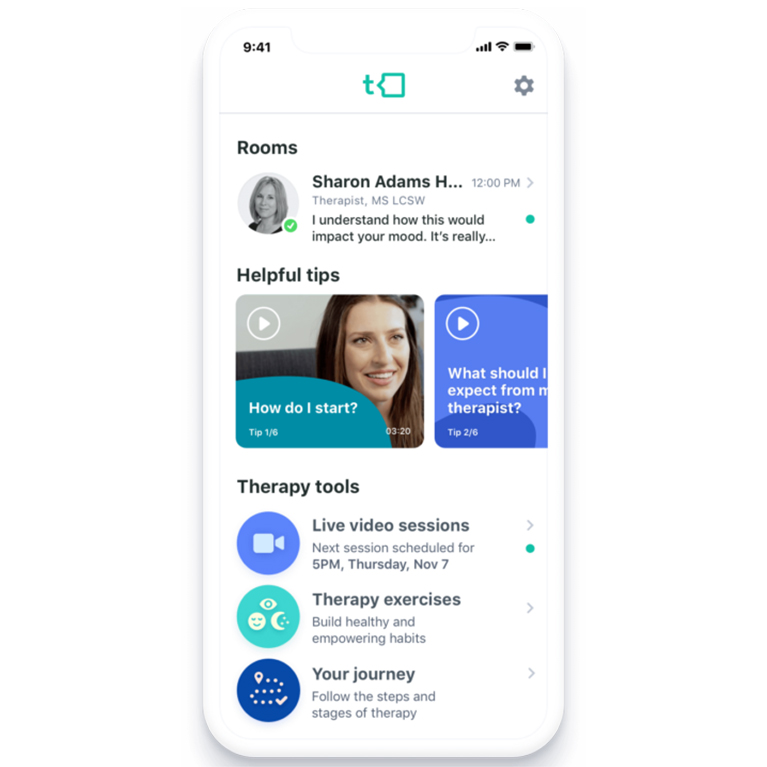
|

|
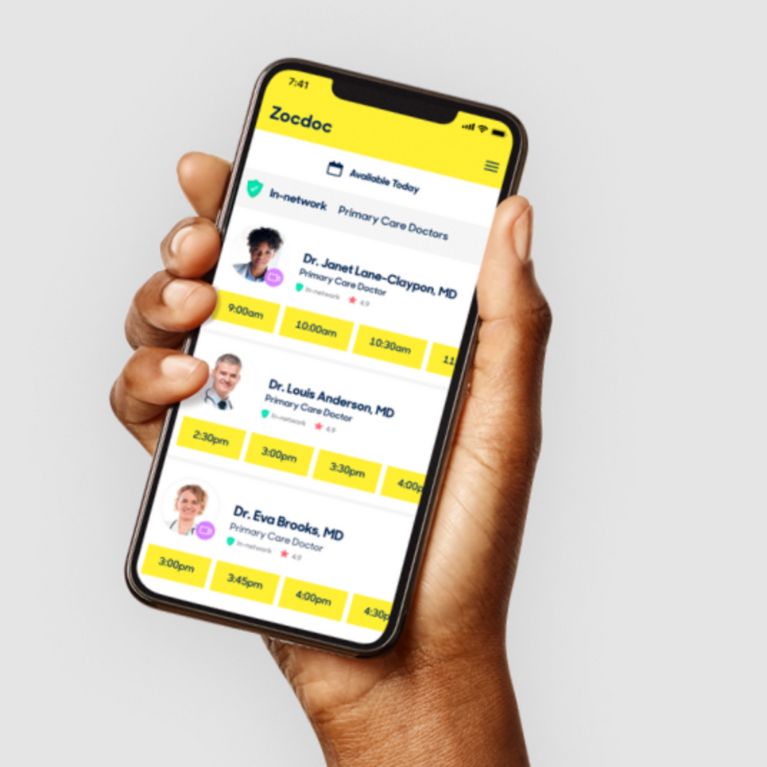
|

|
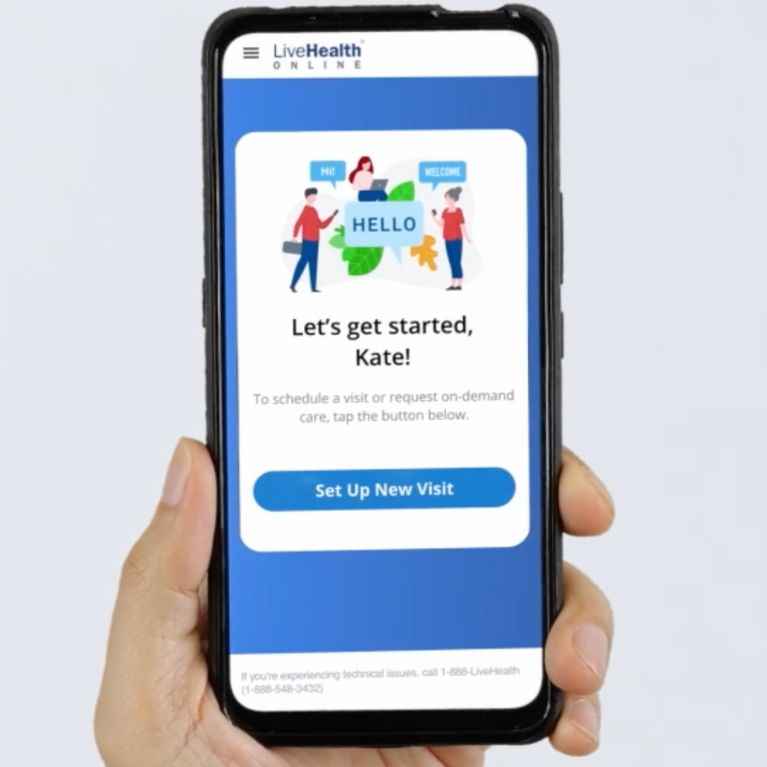
|
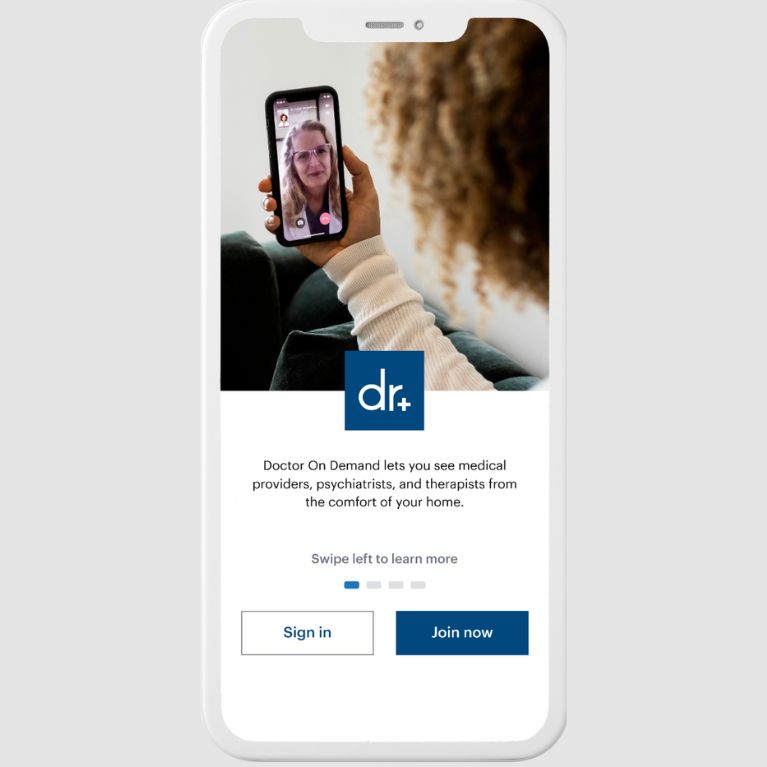
|
|
| Talkspace | Brightside Health | Zocdoc | Alma | LiveHealth Online | Doctor on Demand | |
| Rating | ||||||
| Cost | $69+/week | $95+/month | Varies | Varies | $85-$100 | Varies |
| Session type | Individual, Couples | Individual | Individual | Individual, Couples, Family | Individual | Individual |
| Offers prescription | Yes | Yes | Yes | Yes | Yes | Yes |
| Best for | Overall | Anxiety & depression | Choose your own therapist | Comprehensive services | Kids | Ease of use |
Our teletherapy testing methodology
Every Fortune teletherapy review features in-depth analyses conducted by reviewers who have first-hand experience in mental health. The information is then reviewed by qualified mental health experts to check for accuracy. All of the claims are backed by scientific evidence. Read more about our teletherapy testing methodology for expanded information on each factor.
Therapist quality—30%
A top-notch teletherapy service should feel both personal and professional, not impersonal or generic. It should connect users with certified and experienced therapists, not unqualified individuals. Here’s what we look for:
- Expertise
- Personalization
- Interaction quality
Accessibility and convenience—30%
Teletherapy directly impacts an individual’s ability to seek, engage with, and benefit from mental health services. Whether it’s a scheduling issue, lack of transportation, or being physically unable to see a therapist in person, everyone’s situation is different. With the convenience of teletherapy being a significant advantage, we evaluate:
- Ease of use
- Availability
- Platform reliability
Cost and value—20%
Unfortunately, mental health services are not a financial privilege for most people who don’t have insurance that covers it. In an era where mental health care is more necessary, yet often more expensive than ever, assessing the cost-effectiveness of teletherapy services becomes not just relevant but essential.
Here’s what we factor into a teletherapy’s cost and value rating:
- Pricing transparency
- Insurance and coverage
- Value for money
Support and resources—10%
Having additional support and resources is invaluable for clients seeking to deepen their understanding of mental health issues, learn additional coping strategies, or continue therapeutic work in between sessions. Beyond the therapy sessions, additional support can enhance the therapeutic experience.
Our factors in this rating include:
- Supplementary materials
- Customer support
- Aftercare
Privacy and security—10%
While teletherapy is an incredibly convenient way to seek mental health, it poses some risks. Maintaining client confidentiality and data security is paramount in teletherapy. As clients entrust teletherapy services with their mental health information, stories, and vulnerabilities, the responsibility of these platforms to protect such information is paramount.
Here’s what we’re looking for:
- Compliance with HIPAA and data protection laws
- Encryption and security measures
- Anonymity options
Best overall online therapy that takes insurance: Talkspace
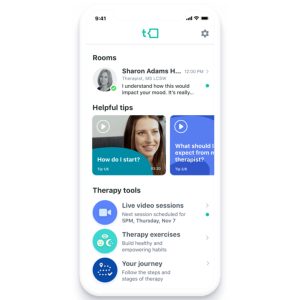

Key product features
What you should know
Talkspace is our pick for the best overall online therapy platform that takes insurance. It accepts most insurance plans, reducing the average copay to less than $30 per session.
- Talkspace accepts most major insurance plans, including Aetna, Cigna, Optum, and more.
- The average copays of Talkspace users are less than $30 per session.
- If you aren’t using insurance, Talkspace can be more expensive than other options.
- Talkspace offers both therapy and psychiatry services, making it a good fit for a wide range of mental health needs.
- Teens aged 13 and up can also get online therapy through Talkspace.
Why we like Talkspace as best overall
We found that Talkspace is the easiest online therapy platform to use with insurance. It’s simple to check your eligibility; you can scroll through options to find your insurance provider on their list before you even make an account.
There are dozens of commercial insurance providers listed on its site, including Anthem, Blue Cross Blue Shield, Cigna, and many more. According to Talkspace, the average copay of covered users is $30 or less; many users get services for free.
Note that Talkspace does not accept Medicaid or Medicare plans, although its website states that it’s working on expanding coverage in this regard. However, you may be able to access Talkspace for free through your employer’s EAP, or employee assistance program.
When therapy is covered like any other medical service, it sends a message that mental health is just as important as physical health, encouraging more people to seek the help they need without feeling ashamed or embarrassed. Therapist Rychel Johnson shares, “Insurance can provide people with greater access to qualified mental health professionals they would not have had without insurance coverage.”
While Talkspace excels with insurance-backed therapy, it’s important to consider out-of-pocket costs if that’s your preferred route. If you’re paying privately, Talkspace might not be the most budget-friendly option compared to others.
Its most basic plan, offering text-based messaging only, starts at $69 per week. However, this may not be ideal for everyone seeking therapy. To access video sessions, the price jumps to $99 per week, translating to roughly $400 monthly. Psychiatry and couples therapy services climb even higher, with an initial psychiatric evaluation costing $299 and follow-up sessions at $175. Couples therapy starts at a hefty $436 per month.
Many online reviews state that patients had problems with their insurance coverage and Talkspace later on after they’d already started treatment. We’d recommend that you confirm that Talkspace accepts your insurance plan—regardless of what the website says—and call the billing department if your insurance coverage changes.
Besides individual therapy, Talkspace offers services for teens and couples. This versatility makes Talkspace a one-stop shop for your mental health needs. It also caters to teenagers, and its unique Talkspace NYC Teenspace provides free services to New York City residents aged 13 to 17.
To learn more about how Talkspace compares to other platforms, see our Talkspace vs BetterHelp guide.
What customers are saying
People who’ve been able to successfully access Talkspace through their insurance coverage or EAP have had mostly positive experiences, although it varies based on the provider. And it’s worth noting that Talkspace has an overall 2.9-star rating out of 5 on TrustPilot.
“It was a very easy process to use my EAP from work and then switch over my insurance. I appreciate that Talkspace takes insurance and EAP so that I can be seen. It was also very quick to get in with a therapist vs finding someone in the community.”
—Chrystal P, TrustPilot reviewer
Another TrustPilot reviewer going by the username Kaikinpebs states that they appreciate “the ease of applying through the TalkSpace app to secure a therapist & also the quality of therapists available.”
However, some reviewers warn that the sign-up and insurance eligibility process to start Talkspace was not as easy as the website makes it seem. One TrustPilot reviewer, Asia J., reports, “Upon signing up for the first time, I thought they initially ran my insurance and that I was covered. So I booked a session, and then a week later, they sent me an email to inform me they had charged me. There is no way I would have agreed to a session that I would have had to pay $125 out of pocket for.”
Check out our full Talkspace review for more information.
Specs
| Average copay | $30 |
| Private pay option | Yes |
| Medicare/Medicaid | No |
| Platforms | Desktop, iOS, Android |
| Modalities | Individual & couples |
| Ages | 13+ (teens and adults) |
Best online therapy that takes insurance for anxiety and depression: Brightside Health


Key product features
What you should know
Brightside Health is an online therapy platform that offers needed mental health support to people with a range of mild to severe mental health symptoms.
- Besides commercial insurance plans, Brightside Health also works with Medicaid and Medicare in select states.
- Private pay options start at $95 per month for psychiatry only. If you want therapy, the out-of-pocket cost is $299/month.
- Accepted insurance plans include Aetna, Cigna, Anthem, and more.
- Brightside’s unique Crisis Care plan offers support for those at higher risk of suicide. You can only pay for this program through insurance.
Why we like Brightside Health for anxiety and depression
Our evaluation found that Brightside Health is an online therapy platform that supports people with a broad spectrum of mental health conditions, ranging from mild to severe symptoms, with a strong commitment to evidence-based treatment. Its clinicians are trained in the Unified Protocol, a research-supported therapeutic approach designed to address anxiety, depression, and even post-traumatic stress disorder (PTSD). (4)
Anxiety and depression are two of the most common mental health disorders, and they often coexist or overlap in individuals. While anxiety and depression are distinct disorders, they often respond to similar treatment approaches and lifestyle changes. (5)
Brightside’s Crisis Care plan offers evidence-based support for people who are at higher risk for suicide, including those who have recently been hospitalized for suicidal thoughts and behaviors. Many online providers won’t work with people who have been recently hospitalized, so this service fills an important unmet need. Note that you can only pay for Crisis Care using your insurance; private-pay options are unavailable for this program.
Brightside works with a multitude of commercial insurance plans, including industry giants like Aetna, Cigna, Anthem, and more. Even better, Brightside accepts Medicare and Medicaid in select states. This inclusivity makes Brightside an excellent solution for lower-income individuals who may find traditional therapy out of reach.
Here are a few considerations worth mentioning. We found that Brightside requires you to complete an assessment, including your name, zip code, age, and mental health symptoms, before allowing you to check your insurance eligibility. This may translate to a slightly longer onboarding experience compared to other platforms. Additionally, its Medicare and Medicaid acceptance is geographically limited, although it’s purportedly working on expanding to other states.
To learn more about this platform, visit our full Brightside review.
What customers are saying
Many patients, especially those who could use their insurance plans to pay, are happy with Brightside’s services. However, Brightside only has a 1.4-star rating out of 5 on TrustPilot, which potential users should consider.
“Brightside works with my insurance provider (Aetna), so I enrolled after months of having trouble getting an in-person visit locally. Brightside has significantly improved my quality of life and my outlook on the future, and I cannot understate that. I am so grateful.”
—Amanda P., TrustPilot reviewer
A Reddit user with the username “Noplease22” describes how much using Brightside has helped them: “I currently use Brightside for medication and therapy, and I have had one of the best therapy experiences I’ve ever had. It’s been so, so helpful. I’m learning a ton.”
However, many have complaints about what they say are inflated or deceptive payment policies. One TrustPilot review by Kayla S. describes an upsetting situation with Brightside’s billing department: “I’d give less than 1 star if I could. Brightside sent me an invoice two weeks ago for back payment starting at the beginning of the month. Without explanation or any clarification, they automatically billed my account. I wasn’t able to make rent or get through to any customer service rep.”
Specs
| Average copay | Unknown; no insurance rates start at $95/month |
| Private pay option | Yes, except for Crisis Care |
| Medicare/Medicaid | Yes, in select states |
| Platforms | Desktop, iOS, Android |
| Modalities | Individual |
| Ages | 18+ (adults only) |
Best online therapy that lets you choose your own therapist: ZocDoc
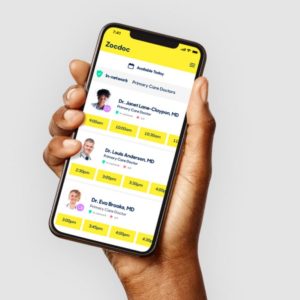

Key product features
What you should know
ZocDoc is a marketplace for health providers who offer services ranging from psychiatry and therapy to physical health issues. ZocDoc does not provide therapy services but facilitates access to therapists
- Insurance coverage varies by provider on ZocDoc. Many accept commercial insurance plans, Medicaid, and Medicare in select states. However, coverage specifics should be verified with each provider before booking.
- Private pay options are available on ZocDoc, with pricing determined by each provider and service. Users can choose between paying out-of-pocket or utilizing their insurance coverage.
- When searching for providers on ZocDoc, users can filter results based on their location, desired service (such as psychiatry or therapy), and insurance provider.
- While ZocDoc offers a wide selection of mental health providers, the availability of in-network providers may vary depending on your location and insurance plan.
Why we like ZocDoc for choosing your own therapist
ZocDoc is an online marketplace that helps people find health providers, including mental health therapists. ZocDoc offers a diverse array of mental health professionals, ranging from online psychiatrists to licensed counselors. This flexibility extends to payment options; users can pay through insurance or out-of-pocket, and pricing varies extensively by provider.
One of ZocDoc’s strengths lies in its extensive provider network, many of whom offer same-day appointments. Unlike platforms that rely solely on therapist-matching algorithms, ZocDoc lets users browse through profiles, read reviews, and assess compatibility before booking.
If you’re looking to use your insurance plan to pay for services, you’ll need to use that information to filter results. ZocDoc’s interface simplifies the search process. Just input your location and desired service, whether it’s psychiatry or therapy, along with your insurance provider (or private pay selection), and you can promptly access a list of nearby providers.
It’s worth keeping in mind that, while there are plenty of therapists available on Zocdoc, providers who accept your insurance plan may be limited. For example, when we searched in one area for therapists who accept a certain insurance plan, we only got results for nurse practitioners (to prescribe medication), no therapists. Depending on the type of license a mental health professional has, their ability to treat across state lines may be limited. For example, a therapist may only be able to provide therapy for clients residing in the states where their license is.
Additionally, as with any service reliant on individual practitioners, the quality of the user experience hinges on the provider you choose. Thoroughly researching and vetting potential providers is key to ensuring a positive therapeutic journey. ZocDoc lists verified reviews of each provider, which makes this process easier.
To learn more about this platform, check out our full Zocdoc review.
What customers are saying
ZocDoc has earned a 4.7-star rating out of 5 on TrustPilot. People love that the app is easy to use and stress-free and are generally happy with the quality of mental health providers offered. One TrustPilot reviewer, Dylan P., puts it simply: “[ZocDoc] connected me with the best therapist I have ever had.”
“It’s a great way to find a therapist quickly, and there is a lot of information about the types of issues they specialize in. Their qualifications are clear to see. Easy scheduling.”
—SBA, TrustPilot reviewer
Many users appreciate how easy it is to find a therapist who accepts their insurance, with Rineeka B. writing on TrustPiliot, “It was easy to find a therapist who accepts my insurance. Usually, it’s very difficult to find a doctor who will accept my insurance. Also, the therapist that I found is amazing, and the reviews I read before I chose her were beyond accurate.”
Others have complaints about technological issues with the ZocDoc platform, with TrustPilot reviewer Michael M. describing: “On the call with the therapist, the call broke up several times, forcing several restarts. Very frustrating overall.”
Specs
| Average copay | Depends on provider & insurance |
| Private pay option | Yes |
| Medicare/Medicaid | Yes, some providers |
| Platforms | Desktop, iOS, Android |
| Modalities | Individual |
| Ages | 18+ (adults only) |
Most comprehensive online therapy that takes insurance: Alma


Key product features
What you should know
Alma is an online directory of therapists in your area that you can use to find a provider that’s the best fit for you.
- Alma makes it easy to see only therapists who take your insurance; you just have to use their drop-down menu.
- The costs for sessions depend on the provider you choose and your insurance copay. Alma does not charge a subscription fee.
- You can filter therapist results by identity (race, gender, etc.), language, specialty, therapeutic approach, and more.
- There is extensive availability, with hundreds to thousands of therapists available in most areas.
Why we like Alma for most comprehensive
Alma is an online directory of therapists, and the platform impressed us with its impeccable design, ease of use, and comprehensive services. Its search function is easy to use, and you can access it even without making an account. Simply input your location, choose your insurance plan from the list, and click on the services you’re interested in receiving.
The available services are comprehensive and include individual therapy, couples therapy, family therapy, child and adolescent therapy, and medication management.
Once you hit search, you will get access to the list of available online providers in your area that take your insurance. We found the therapist offerings to be extensive; in most places we searched, we found hundreds of available providers. Some larger metropolitan areas had thousands of therapists listed.
We especially love that Alma allows you to diligently filter your results to be able to find a therapist you can connect with. You can filter by identity, including gender identity, sexual orientation, race, and more. This makes it easy for BIPOC or LGBTQ+ individuals to connect with a therapist who shares their identity—research shows that identity-matching may improve therapeutic outcomes. (6)
Historically, many minority communities have faced stigma surrounding mental health issues, which can prevent individuals from seeking therapy or disclosing their struggles. Cultural beliefs, values, and norms may also influence attitudes toward mental health and therapy, leading to reluctance or resistance to seeking help outside of the community. Alma aims to break down these barriers. (7)
In addition to identity, you can filter by specialty (dozens of areas, including grief and loss, relationship problems, and even holistic interventions like yoga and acupuncture), therapeutic approach, license type, and more.
What customers are saying
Alma clients appreciate the quality services, especially when they’ve been able to connect with a good therapist.
“I used Alma to find mine. She’s the best therapist I’ve ever had, and she specializes in trauma, so it was great to find someone who could treat my PTSD and accept my insurance. It ended up that I only pay $20 per session, which takes away any of the financial stress of therapy.”
—”Jubjub9876a,” Reddit reviewer
Others report that the insurance benefits are unclear with Alma providers, with one client on Reddit going by “InProgress88” describing their frustrating experience. “I found a therapist that I really like through Alma. They said it would be in-network and only $15 a session. Finally, after getting an explanation of benefits, they’re saying she is not in the network. After spending time trying to go through Alma (who still insists it’s in-network) and my insurance (who says it is not, but they are reviewing, and it will take 30-40 days for a decision), I’m now having to cancel my upcoming appointments.”
Alma therapists themselves are also raising the alarm about insurance confusion on the platform, with one therapist on Reddit with the username “Orion819” stating, “In the past month or so, it’s saying three of my clients’ copays were incorrect, and it’s saddling them with $500-800 bills. I feel so bad for the clients.”
Specs
| Average copay | Depends on provider & insurance |
| Private pay option | Yes |
| Medicare/Medicaid | Some providers |
| Platforms | Desktop |
| Modalities | Individuals, Couples, Family |
| Ages | All ages |
Best online therapy that takes insurance for kids: LiveHealth Online


Key product features
What you should know
LiveHealth Online does not offer therapy services directly but provides users with a network to find providers that offer mental health services.
- LiveHealth Online is an online marketplace of medical providers, including mental health therapists and psychiatrists.
- Their providers accept many different insurance plans, including some providers who accept Medicare.
- Children and teens aged 10 to 17 can get mental health services through this platform.
- Availability may be limited in some locations or for some insurance plans.
Why we chose LiveHealth Online for kids
LiveHealth Online is a convenient choice for families seeking affordable online therapy services for their children. The platform offers a user-friendly interface and a diverse range of providers, including psychiatrists and therapists, that make it easy to find the right professional for your child’s mental health needs. The ability to quickly connect to 1:1 video sessions via iOS and Android apps is a huge benefit for busy parents.
One of LiveHealth Online’s key strengths is its budget-friendly pricing structure, with lower-than-average costs even without insurance. Therapy sessions start at $85 each, much less than average, and psychologist visits cost $100. Initial psychiatric evaluations are priced at $185, with follow-up sessions costing $80 each. Additionally, the platform accepts many commercial insurance plans, which makes services even more affordable.
Although child therapy is available on LiveHealth Online, it’s important to note that it’s limited to children aged 10 and up.
In addition, given the developmental considerations of younger children, some parents may prefer in-person consultations for a more comprehensive evaluation and treatment approach. Around 1 in 6 children in the U.S. aged 2-8 have a diagnosed mental health disorder. (8) If your child is in a mental health crisis or showing signs of a mental illness like depression, it’s essential to speak with their pediatrician (9) and get comprehensive support (that an online platform like LiveHealth may not be able to deliver).
If you are looking for more options, check out our complete guide on the best online therapy for kids.
What customers are saying
Many people have complaints about the individual mental health providers they work with. One TrustPilot reviewer, Faith, reveals, “I have tried three therapists here. Two of whom told me my life was perfect and that I didn’t need therapy. They wouldn’t let me speak. I would start a sentence, and they interrupted.”
Others state that the services aren’t efficient, especially if you need quick support for your child. TrustPilot reviewer Alicia W. says: “If I could give zero stars, I would. I waited forever to speak to a doctor about my child. I could barely understand the doctor, who was short and rude nonetheless.”
However, not all users agree with these misgivings.
“I was shocked to see all these negative reviews. We get LiveHealth covered through our insurance, so that helps, but my wife has used this dozens of times for both herself and our kids. Rarely disappointed.”
—Alan K., TrustPilot reviewer
Specs
| Average copay | Depends on provider & insurance |
| Private pay option | Yes |
| Medicare/Medicaid | Some providers |
| Platforms | Desktop |
| Modalities | Individuals, Couples, Family |
| Ages | All ages |
Best online therapy that takes insurance for ease of use: Doctor on Demand


Key product features
What you should know
Doctor on Demand’s simple platform makes it easy to schedule a mental health appointment for yourself and any family members or dependents.
- Doctor on Demand lists online providers who take your insurance, including therapists and psychiatrists.
- The sign-up process is simple, and you can see available providers immediately.
- Out-of-pocket costs are made clear upfront, so there are no surprises.
- Checking insurance coverage is also easy once you sign up for an account.
- If you’re not sure what type of mental health service you need, Doctors on Demand has options that can help you decide.
Why we like Doctor on Demand for ease of use
Doctor On Demand offers a streamlined and user-friendly platform for accessing therapy services. One thing we love about the platform is its emphasis on transparency and affordability. Before booking a session, users can easily check their insurance coverage, with the copay amount displayed upfront. Additionally, the platform allows users to easily select who needs an appointment, whether it’s for themselves or a family member/dependent.
Navigating Doctor On Demand’s app or website is intuitive. The clean interface facilitates easy browsing of available providers and their profiles. Users can efficiently scan through therapist profiles, which include detailed information about their areas of expertise and treatment approaches.
It’s important to note that some areas or insurance plans may have limited provider availability.
In addition, the platform does not have provider reviews, making it challenging to gauge the quality of care provided by each therapist.
What customers are saying
Many people love how easy the Doctor on Demand platform is to use.
“I have used Doctor on Demand four times in the past three years for myself and my son. I have had a very positive experience every time…The convenience is what I appreciate most.”
—Deborah R., TrustPilot reviewer
However, many people say they’ve been connected to mental health therapists on Doctors on Demand who did not meet expectations. TrustPilot reviewer Ritalynn says, “I tried two therapists there. The first one used up my time mostly talking about herself. And the second was a male chauvinist who kept harping on the fact that I’m a strong woman as if it was a crime.” Another reviewer, Susan N., agrees: “The therapist they paired me with was a horror show. She was mean and snide right off the bat.”
Like other marketplace-based services, your experience will vary depending on the provider you choose.
Specs
| Average copay | Depends on provider & insurance |
| Private pay option | Yes |
| Medicare/Medicaid | Some providers |
| Platforms | Desktop, iOS, Android |
| Modalities | Individual |
| Ages | All ages |
How to choose an online therapy platform that accepts insurance
It can feel overwhelming navigating the various options available for online therapy platforms, especially once you bring insurance into the mix. To help you save time and reduce stress, we’ve outlined some critical elements you should consider during your search to help narrow your choices.
- Insurance eligibility: First, you’ll want to ensure that the online therapists you’re considering working with accept your insurance. This can significantly narrow your search, as each platform or individual therapist is unique in the plans it works with. You can ask your insurance provider, as well as the provider themselves, to check. Many websites have insurance eligibility tools, but it’s best to double-check to be safe.
- Cost: When using insurance to help pay for therapy, the exact cost can vary depending on many factors, including your benefits coverage, the platform, therapist qualifications, and service type. During our evaluation, we found services that average $30 or less per session, while others run on a subscription model that can cost from $95 to over $200 per month. Before starting therapy, it’s always best to clearly understand what you’ll owe. When contacting your insurance provider to verify your eligibility, we also encourage discussing costs based on which platforms you’re considering.
- Session availability: One of the biggest benefits of online therapy is that it increases access to care. However, that doesn’t mean every platform will offer appointment availability that suits your needs and preferences. Determine how often you’d like to speak with your provider—weekly, biweekly, monthly—and what days and times typically work best. For example, if you have a busy weekday schedule, you may need a provider that offers evenings and weekends. Moreover, if you notice a provider with no immediate openings or few appointment slots to choose from, it may be a red flag that meeting with your provider may be challenging when needed.
- Therapist connection: While some platforms automatically match you with a therapist based on your responses to an intake questionnaire, others offer you the freedom to choose your own. Either way, you’ll want to ensure you’re working with a therapist with whom you feel you could connect. This can be tricky to know before meeting them; reading their online profile can help you understand their therapeutic approaches and personality. Most therapists also offer a free consultation call, where you can ask them questions and get a feel for whether or not you think you could form a therapeutic relationship with them. Even after thorough vetting, the first therapist you work with may not be the right one, so choosing a platform that allows you to switch providers easily is critical.
- Ability to prescribe: For some mental health conditions, providers recommend pairing therapy with medication to help reduce symptoms and optimize brain chemistry. If you’re currently on medication for your mental health or would like to explore that option if recommended by your provider, it can be helpful to choose a platform that offers psychiatry or medication management as part of its services.
What to consider before purchasing an online therapy subscription
Online therapy options often require monthly subscriptions. Before signing up for one service, it’s important to be sure that it meets your mental health needs, and that your insurance provider covers it. Even if the service’s website states that your insurance is accepted, it’s best to talk to your insurance company directly to make sure. Double-check your out-of-pocket costs before committing to a subscription.
It’s also important to look at cancellation policies. Can you cancel the subscription if you don’t like the service, or is there a minimum time commitment?
If you’re uncomfortable committing to an online therapy subscription, there are many options on this list that bill per session, not per month.
Does Medicare or Medicaid cover online therapy?
Medicare and Medicaid cover a wide range of mental health services across the United States, including online therapy, with the cost typically matching what you’d pay for in-person services. However, only certain online therapy services accept these plans, and the exact coverage and cost vary depending on the platform, your provider, and what services you use.
Many of the online therapy options on our list accept Medicaid and/or Medicare, except for Talkspace. It often depends on the individual provider, so ask the online therapist you’re matched with about their specific policies. (10)
How do I know if my insurance covers online therapy?
Most online platforms that take insurance provide a list of the plans they accept, which can offer a solid starting point, but these lists typically aren’t all-encompassing. You should take additional steps to verify where you can use your insurance to help cover therapy costs.
While many platforms also offer free insurance eligibility checks on their website, we always recommend contacting your insurance provider directly to verify coverage. Throughout our evaluation process, we’ve seen various cases where customers have thought their insurance was verified by a therapy platform, only to be later charged the full amount for services. The safest route is to always get the information first-hand from your insurer by providing information on which platforms you’re considering, what services you’re interested in, and any details you can offer regarding the provider you may work with.
Some additional questions you might consider when speaking with your benefits provider include:
- Which online therapy services are covered—videoconferencing, phone calls, live chat, or asynchronous messaging?
- Is a mental health diagnosis required for insurance coverage?
- Which providers are in-network?
- How many therapy visits am I allotted, and in what timeframe?
- Do I have to meet my deductible first?
- What will I owe for my copay?
FAQs
Are online therapists worth it?
It’s up to you to decide whether seeing an online therapist is worth it. Research has found that online therapy is just as effective as in-person therapy, so you don’t need to worry about whether online therapy will work for you or not. (11)
How much does online therapy with insurance cost?
Your out-of-pocket costs for online therapy with insurance depend on the details of your coverage. Your copay amount can typically be found on any documents explaining your insurance benefits.
Does Talkspace take insurance?
Yes, Talkspace accepts most major insurance plans for its services. According to its website, the average copay that insured members pay for services on its platform is less than $30 per session.
Does BetterHelp take insurance?
BetterHelp does not accept insurance plans. You must pay out-of-pocket for their services, which are priced lower than typical private therapy sessions. However, choosing an online therapy provider who does accept your insurance can often bring costs down even further.
Can online therapists prescribe medication?
Licensed therapists cannot prescribe medication; instead, they specialize in talk therapy to help you work through challenges, manage your symptoms, and improve your mental health. If you’re seeking medication management, some online therapy platforms also offer these services through psychiatrists, psychiatric nurse practitioners, physician assistants, or other healthcare professionals licensed to prescribe medications.
What type of online therapy is most cost-effective?
The cost of online therapy varies greatly depending on your location, the platform, the type of services, and your insurance coverage. Talkspace proved its value during our testing and research because of its comprehensive services, low average cost with insurance, and user-friendly platform. However, it all comes down to your unique circumstances and personal preferences. Check out our roundup of the best affordable online therapy platforms for more excellent options.
Our experts
Rychel Johnson
Rychel Johnson, M.S., LCPC, is a licensed clinical professional counselor in Kansas. She owns a private practice specializing in anxiety treatment and social skills development. Rychel also enjoys extensive road trips and spending time with her husband, daughter, and two cats.
Stephanie Hope, CSSC, CSMC, CLC
Stephanie Hope has over seven years of experience in product and service journalism, with a focus on sleep and well-being. Not only is she a Certified Sleep Science Coach, but she is also a Certified Stress Management Coach, Longevity Coach, and is working on becoming a Wellness Coach through the Spencer Institute.
Krista Manning
Krista Manning is an accomplished medical copy editor and fact-checker who stands out in the pharmaceutical, health, and wellness domains. With a meticulous eye for detail and a command of medical language, Krista ensures the accuracy and clarity of content. Beyond her professional expertise, Krista is an advocate for mental health awareness. Recognizing the crucial intersection of psychological and physical well-being, she actively contributes to projects that promote mental health awareness within the healthcare narrative. Krista’s commitment extends beyond the pages she edits, emphasizing the holistic nature of health communication.

Saya Des Marais, MSW
Fortune Recommends Mental Health Writer
About Author
Saya is a former therapist, mental health trainer, and freelance mental health writer. She holds a graduate degree in clinical social work from the University of Southern California, and has provided mental health services in community mental health clinics, schools, residential treatment facilities, and, most recently, a mental health app. Through her mental health content, she strives to make life-saving mental health research and information easily digestible to those who need it most.
